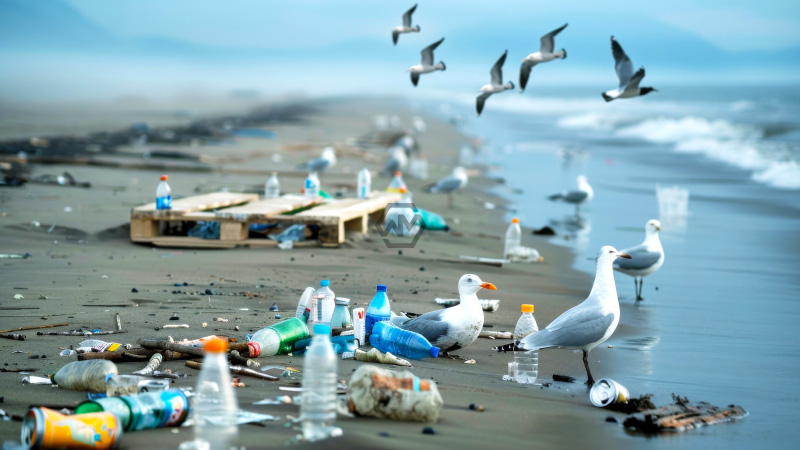- Civil society organizations urge global action against plastic pollution.
- Plastics in oceans could outweigh fish by 2050 if current trends continue.
- Inadequate waste management and recycling exacerbate the problem, particularly in Nigeria.
Concerns about plastic pollution are escalating as civil society groups warn of its severe impacts on global ecosystems, human health, and economies.
During the “Beyond the Plastic Ban” webinar, organizations like CODAF, SRADev, and GAIA called for urgent international and local action to address the issue.
Plastic Pollution Crisis: Civil Society Demands Immediate Action
Plastic pollution is rapidly becoming a critical global issue, with civil society organizations stressing the need for immediate intervention. The “Beyond the Plastic Ban” webinar revealed alarming statistics, such as the projection that the weight of plastics in the ocean could exceed that of fish by 2050 if current practices persist. The session underscored the severe consequences of plastic pollution on ecosystems, human health, and economies, particularly in countries like Nigeria where waste management infrastructure is inadequate.
Globally, over 400 million tonnes of plastic are produced each year, with around 8 million tonnes entering the oceans annually. Despite efforts to manage this waste, only about 9 percent of plastic has been recycled, leaving the majority to accumulate in landfills or the environment. The impact of this pollution is evident in marine life and human health, as plastic waste clogs drainage systems and exacerbates flooding, especially in coastal areas like Lagos and Benin City.
In Nigeria, the situation is further complicated by insufficient recycling facilities and high plastic consumption rates. Less than 10 percent of plastic waste is recycled, leading to significant environmental and infrastructural challenges. The webinar participants called for improved waste management practices, stronger regulations, and greater public awareness to address these issues effectively.
The growing plastic pollution crisis necessitates urgent and coordinated global action to prevent severe ecological and health impacts. Immediate measures, including stricter regulations and enhanced waste management, are crucial to mitigating this pressing environmental threat.
“In Nigeria, the issue is aggravated by inadequate waste management infrastructure and growing consumption patterns,” stated Maimoni Mariere Ubrei-Joe.



